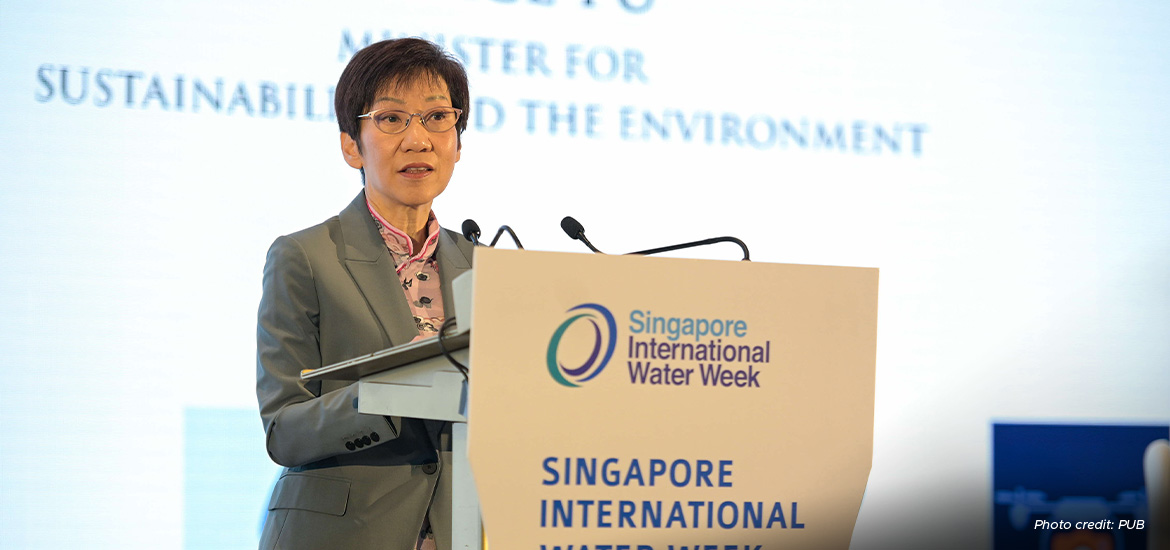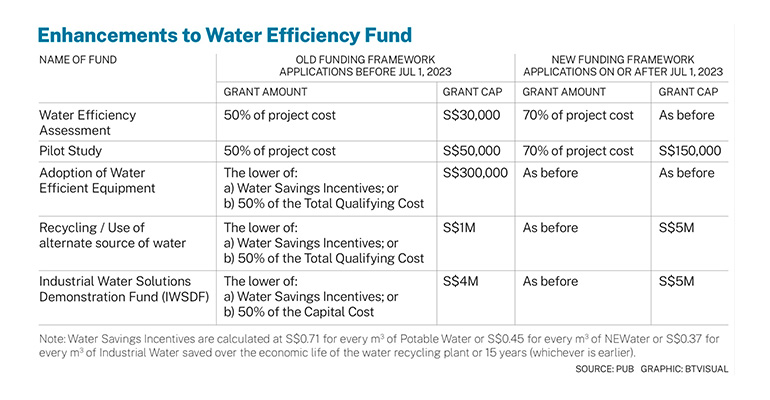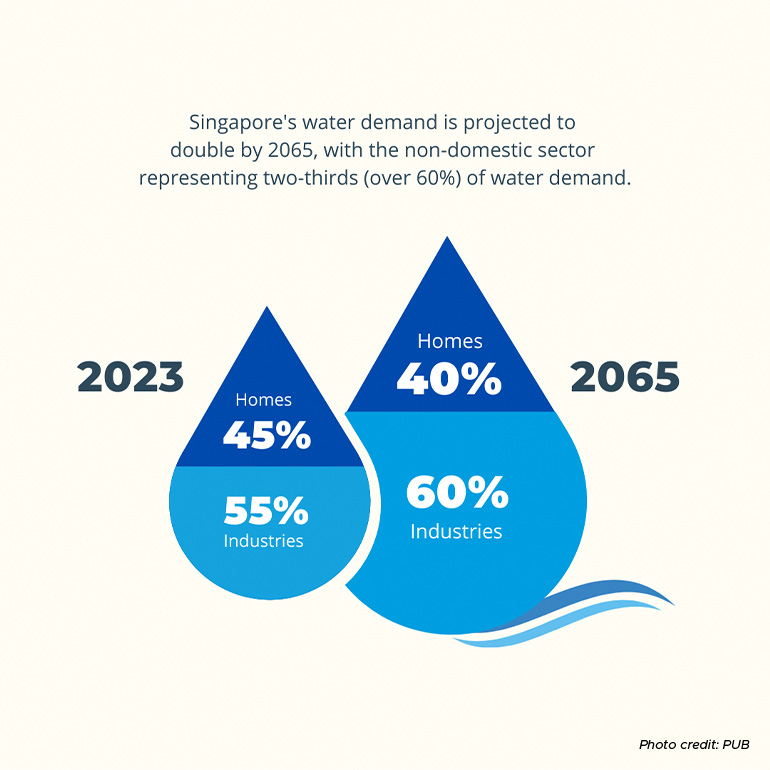PUB, the national water agency, will also raise the funding cap for the Industrial Water Solutions Demonstration Fund from S$4 million to S$5 million. This is a sub-scheme under WEF targeted at the implementation of new technologies and innovative solutions.
PUB will also increase the co-funding ratio for water-efficiency assessments and pilot studies from 50 per cent to 70 per cent, to support and encourage businesses to embark on their water-conservation journey. The funding cap for pilot studies will be increased from S$50,000 to S$150,000, which is expected to benefit smaller businesses and businesses in less water-intensive sectors.
WEF, set up in 2007, has provided funding for companies to implement water recycling, adopt innovative technologies for water conservation, and conduct studies to identify water-saving opportunities in their operations. To date, PUB has supported 375 applications, which it said would result in water savings of about 16 million gallons or 70 million litres a day when the projects are fully implemented – equivalent to about 24 Olympic-sized swimming pools.
In her speech, Fu cited the example of Hotel Laundry, a commercial laundry that provides services to over 30 hotels in the Worldwide Hotels Group. It received a grant under WEF in 2017 to install the Blue Ocean System, which is a filtration system that recycles wastewater back to washers as pre-rinsed water. Hotel Laundry was said to have achieved a 30 per cent recycling rate with this – and up to 60 million litres of water savings a year.
Ridzuan Ismail, Director of PUB’s Water Supply Network Department, said: “By implementing water recycling and water-efficient systems, companies can make an immediate impact and reduce their water demand, achieve cost savings and strengthen their long-term competitiveness and resource resilience. This will also ensure sustainable growth in long-term water demand in Singapore.”
Fu also touched on the mandatory measures, announced during the Committee of Supply debate in March, that will be put in place to manage demand from intensive water users in the industrial sector. From next year, PUB will introduce legislative requirements for water recycling on new projects in the water-intensive wafer fabrication, electronics and biomedical sectors.
These are projected to achieve an additional 40 million litres of water savings per day from 2035.









